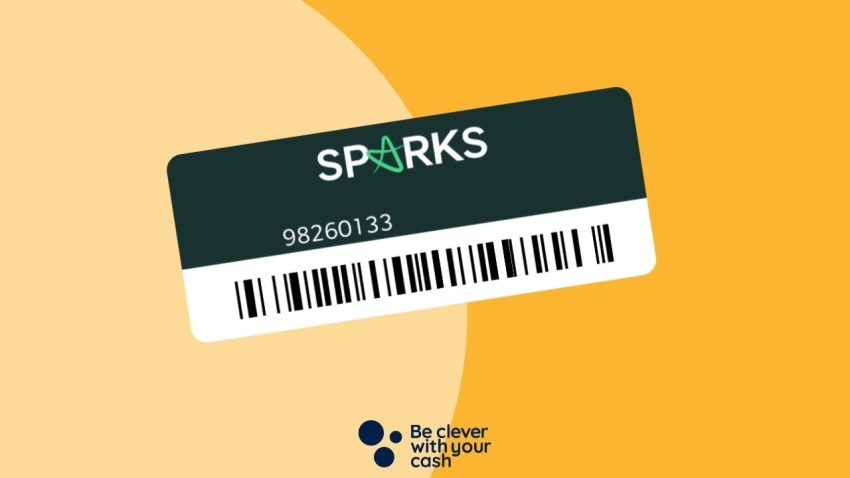Everything you need to know if your mortgage is coming to an end
When you have a mortgage, it’s usually fixed for a certain period of time – usually two or five years but some deals can be as long as 10 years or more.
And when that term comes to an end, unless you’re planning on repaying your entire mortgage, you’ll need to remortgage. This will prevent you being rolled over onto your lender’s Standard Variable Rate (SVR), which is often much more expensive.
But what exactly is a remortgage and how do you do it?

Some articles on the site contain affiliate links, which provide a small commission to help fund our work. However, they won’t affect the price you pay or our editorial independence. Read more here.
What’s a remortgage?
In a nutshell, a remortgage is where you switch your existing mortgage to a new deal – either with your current lender or a new one.
If we’re being technical, if you stay with your existing lender and switch to a new rate, it’s known as a ‘product transfer’ whereas a full remortgage is when you move to an entirely new lender and apply for a new deal.
If you opt for a new lender, they’ll pay off the existing mortgage and the outstanding debt will be transferred to them as part of a new mortgage agreement, likely with a different interest rate and terms.
And as part of the remortgaging process, your current lender’s legal charge on your property (where you agree to give the lender rights over your property so it can recover its money if you default) is removed, and your new lender registers their own charge as security for the loan.
You will then make your monthly payments to whoever you’ve taken out this new deal.
Why should I remortgage?
There are a few reasons why people remortgage:
- To secure a better interest rate than their current deal
- To avoid being automatically moved over onto the lender’s Standard Variable Rate (SVR)
- To increase borrowing — for example, to fund home improvements
- To reflect a change in circumstances, such as adding or removing someone from the mortgage

Try our mortgage calculator
Our mortgage calculator helps simplify things by giving you an idea of how much you could borrow and your likely monthly repayments.
Where do I start?
Remortgaging can be much easier than getting a first mortgage. It’s likely to be quicker with less paperwork especially if you’re sticking with your current lender, as they’ll have all your financial information and details of the property already.
Before your current deal runs out, your lender will write to you to let you know it’s coming to an end. If you don’t remortgage before it does, you’ll automatically be put onto the lender’s SVR, which as I said above, is usually much more expensive.
Your lender might include your closing balance or you can request this so you know how much is left on your mortgage. You’ll need this for your new deal as it’ll tell you how much you need to borrow when you remortgage.
While staying with your current lender may seem the simplest option, this could see you missing out on better deals elsewhere. There are thousands of mortgage deals on the market.
If you’re not sure where to start, you could consider speaking to a mortgage broker to help you find the right deal for your circumstances.
Some brokers charge you a fee to do the work but we’ve partnered with Tembo, to give you access to their award-winning service including your very own mortgage advisor and it won’t cost you a penny!
Alternatively you can find your own options. A good place to start is by checking our remortgage best buy tables, to give you a sense of what deals are out there, and we’ve also got a nifty remortgage calculator that shows you what you could afford to borrow.
Get the best of our money saving content every week, straight to your inbox
Plus, new Quidco customers get a high paying £18 welcome offer

Remortgaging options
In the same way as you did when you mortgaged for the first time, you’ll need to consider what type of deal suits your needs. For example, whether an interest-only or repayment, fixed or variable rate is best for you, and what’s the right length of term for you.
We’ve explained the different types of mortgage here and if you’re not sure, you can always speak to your broker who can help you make a decision.
It’s also worth looking to see if your ‘loan-to-value’, or LTV has improved. This represents how much you need to borrow against the value of the property. Since you’ve been adding to your initial deposit with monthly payments (unless you’re on an interest only mortgage) and paying down your mortgage, your LTV could have dropped and it may mean you have access to better deals. We’ve explained here how loan-to-value works.
Do I need a solicitor?
If you’re remortgaging with a new lender, you’ll usually need to instruct a solicitor or conveyancer to handle the legal side.
Though the legal work is a lot more straight-forward than when you get an initial mortgage, it’ll include drawing up the new mortgage agreement, carrying out checks on behalf of the new lender, confirming your identity, and making sure the new mortgage is registered against your new property on the Land Registry at completion.
If you’re remortgaging with your current provider, you don’t usually need a solicitor. This is because product transfers typically don’t involve any legal work.
In some cases, you might be able to get the legal part for free as part of your remortgage package – some lenders may offer this perk for more simple cases. However, you’ll need to check how the free legal service impacts the interest rate on offer, as it may not be the best deal overall.
It’s a good idea to also compare all remortgage packages, including those without free legal support. You may find some lenders, with better rates, offer other perks, like cashback, which could be used to help cover legal costs with an independent solicitor instead of the lender’s one.

Compare mortgage rates and deals
Looking for a mortgage? Find the top rates from over 200,000 deals and 100+ lenders with our live tables.
What happens next?
Regardless of whether you use a mortgage broker or apply for a remortgage directly with the lender, you’ll need to show them proof of your financial situation so they can check you are who you say you are and that you can afford the repayments.
This could include: three months’ of bank statements or payslips, utility bills, credit card statements and proof of address usually covering the past three years.
Back in the day, you’d usually need to send in the paper documents for verification. But now you may be able to submit the documents digitally to be checked.
If your application is approved, you’ll then be issued with a Mortgage in Principal (MIP). This tells you how much the bank is willing to lend you, and a valuation will be arranged, so the lender can be confident the property is worth what’s stated.
The lender’s underwriting team will review both your documents and the valuation report to make a final decision on whether to grant you the mortgage.
If all goes to plan, you’ll then get your official mortgage offer, which typically lasts for six months. However, be aware that this doesn’t necessarily lock in the interest rate until the new mortgage begins.
Your solicitor will then do some final checks on the legal stuff. They’ll also request the redemption statement from your current lender (which will state how much you owe), confirm the account is closing, ask for the money from the new lender to pay off your existing mortgage and will register your new mortgage details on the Land Registry.
How much does it cost to remortgage?
As well as solicitor fees, there are quite a few charges that apply when you remortgage.
First there are the fees to end your current mortgage, which may include:
- Early Repayment Charge: if you end your fixed mortgage early to get a new deal, you’ll usually have to pay an Early Repayment Charge (EPC) that’s typically between 1% and 5% of the outstanding balance of the mortgage – which could be thousands of pounds. However, you’ll not have to pay this if your new mortgage starts just after the current deal finishes
- Deeds release fee: also known as an admin fee, this is paid to your current provider so they can send your property’s title deeds to your solicitor. Sometimes it’s paid when you first take out the mortgage, but it’s usually between £50 and £300. But some lenders won’t charge this at all.
And then there are the charges for your new mortgage such as:
- Arrangement fee: this is charged by the lender for setting up your mortgage. It can also be referred to as a product fee and it usually starts at around £1,000 or it could be a percentage of the total amount borrowed. You can normally choose to pay this fee upfront or add it to your mortgage – the best option for you will depend on your circumstances.
- Booking fee: some lenders also charge a booking fee to lock in one of their top deals. It’s not particularly common, especially with remortgaging, but if you do come across it, it’s usually between £100 and £300.
- Valuation fee: if you’re remortgaging with a new provider, they need to know the property’s value and they might charge you for a surveyor to assess your home. This could cost between £250 and £500, although in some cases it can be as much as £1,500. However, in plenty of cases you’ll find the valuation fee is actually covered by the bank or building society you’re remortgaging with.
- Solicitor fees: these are usually around £300 or £350 but the new lender often covers the cost. If not, you’ll need to pay this upfront.
- Mortgage broker fees: if you’ve used a broker who charges a fee it’s usually between £300 and £600 or it could be 1% of the mortgage amount. However, you can easily find a free broker including the multi-award winning Tembo, if you apply via Be Clever With Your Cash.
In addition, you’ll also be paying your new mortgage rate. You can find out how much you’ll be paying each month using our affordability calculator.
If you use a broker, they may factor in these charges when recommending a product. For example, they could show you how much the arrangement fee impacts the cost of the mortgage over the term and whether a deal with a slightly higher interest rate with free legal support is a cheaper option overall.
 Featured switching deal
Featured switching deal
 Customer rating
3.8/5
Customer rating
3.8/5
- Switch bonus£200
- Offer endsUnknown
- Extra bonus£25 Amazon Gift Card
- FSCS Protected? Yes
- Switch bonus requirements Switch using the Current Account Switch Service and close your old account within 60 days of starting the switch
- Deposit requirements Deposit £1,500 in the first 60 days from opening the account
- Direct debits transferred over Set up two Direct Debits before or after the switch from a selected list of household bills
- Existing customers? Can't have held any Santander current account on 1 January 2025
- Restrictions Can't have received a switching bonus from Santander already, offer limited to once per person
- Eligible accounts Open a new or hold an existing Everyday, Edge, Edge Up or Edge Explorer current account
- £25 Amazon Gift Card requirements To qualify for the gift card, you need to complete a full switch using CASS, and make five debit card transactions within 30 days of opening the account
How long does it take to remortgage?
Usually between four to eight weeks. I’d allow for three to four weeks to get a mortgage agreed by a lender although it could be quicker. Then it could be around four to six weeks for the legal work to be carried out.
When should I remortgage?
Your best bet is to start looking at deals six months before your current fixed rate mortgage deal ends. This is to give yourself enough time to sort out a new deal and avoid that dreaded SVR. Most banks and building societies will also let you secure a new deal three to six months before you actually need it.
If rates fall in the meantime, you don’t need to go ahead with it and you’ve still got time to apply for a new deal. However, check the small print to find out if you need to pay the fees in advance as you might not get them refunded if you don’t go through with it.
Will remortgaging impact my credit score?
It can do – but if it does it’ll be minimal.
If you’re remortgaging with a new lender then you’re basically applying for a new mortgage so will need to pass the lender’s credit and affordability checks. This usually includes a hard credit check – a detailed look at your credit score which will be recorded on your credit report – which may temporarily lower your credit score slightly. In most cases a soft credit check which doesn’t impact your score is carried out before a hard credit check is completed by a lender.
If you’re remortgaging with your current lender and the amount you’re borrowing is staying the same, chances are they’ll forgo a credit check as they would have done one the first time round and if you’ve kept up with your repayments, there’s no need to do another one.
What if I want to borrow more money?
You may be able to remortgage and borrow additional funds – plenty of people do this when they need extra cash, say for home renovations. You can do this with your current lender and when you switch to a new one.
You’ll need a good credit history and will need to factor in the higher repayments that comes with a bigger mortgage. Borrowing more will also increase your LTV which means you may not qualify for some of the more competitive deals.
Taking out a bigger mortgage may also not be the cheapest way to access funds and as the mortgage term is usually longer than a typical loan, you could end up paying more interest in the long-run.
Do I remortgage if I’m moving or buying a new home?
If you’ve got a fixed mortgage and are selling your home to buy a new one, you have two main options.
You could ‘port’ your mortgage – if your lender allows it. This means you’ll transfer your existing mortgage to the new property. However, you still need to reapply to port your mortgage and you could be turned down if you don’t qualify. Plus, not every mortgage lender allows borrowers to port their mortgage deal, so it’s worth checking if this is possible with your current provider.
If you need to borrow more, because you’re buying a more expensive home, your lender might not let you or will only allow it if you take out the additional borrowing on the products available at the time.
So effectively you’ll end up with two accounts on one mortgage, usually with different rates. If both are fixed deals they could end at different times which needs to be considered for when you might remortgage in the future.
Alternatively you could take out a whole new mortgage, but remember the fees of redeeming the mortgage early – it could end up very expensive.
Is remortgaging a good idea?
Yes, definitely, if your current mortgage deal is coming to an end and you don’t want to pay more on the lender’s SVR. Just remember, there are a number of different fees to pay.
Important
*Your home may be repossessed if you do not keep up repayments on your mortgage. Be Clever With Your Cash may receive a payment from Tembo Money if you complete a mortgage through the link provided. This will not affect the amount you pay for the service.
This broker fee discount of up to £499 is applicable for standard mortgages and remortgages only, more complex cases including guarantor, buy-to-let, adverse credit, and equity transfer may be liable for a fee. The fee you are required to pay will be clearly outlined by your adviser prior to an application being submitted on your behalf. The offer does not cover any other potential fees that may arise during the mortgage process.
Tembo Money Limited (12631312) is a company registered in England and Wales with its registered office at 18 Crucifix Lane, London, SE1 3JW. Tembo is authorised and regulated by the Financial Conduct Authority under the registration number 952652. Tembo Money was awarded Best Mortgage Broker at the British bank awards in 2022, 2023, 2024 and 2025. Rates are not guaranteed and may change by the time you come to apply. Eligibility criteria may vary by lender.
Our calculator is only an estimate of how much you are able to borrow and does not constitute mortgage advice





